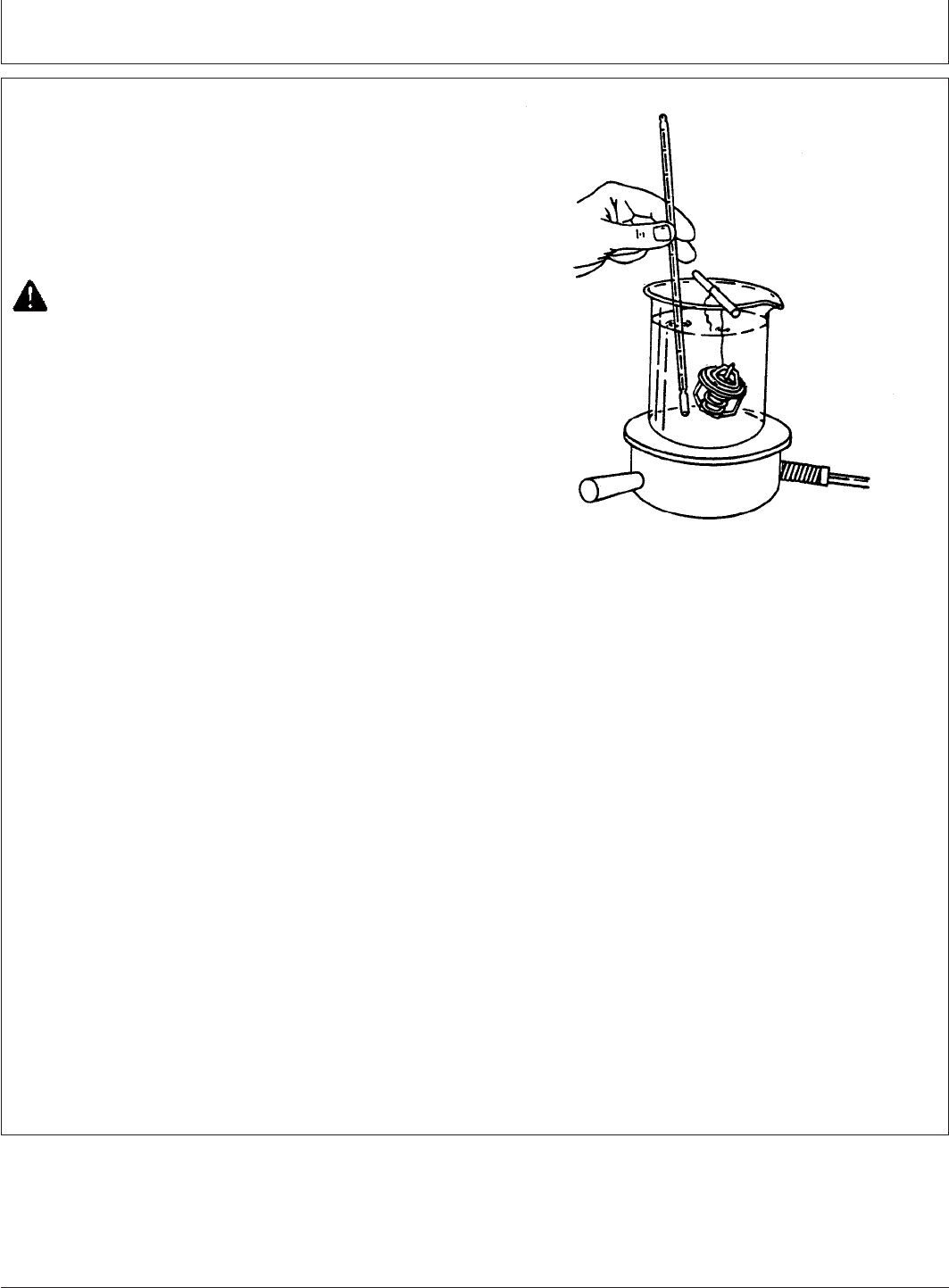
Lubrication & Maint./2000 Hour/24 Month
DPSG,RG34710,112 –19–07JAN02–3/5
RG5971 –UN–23NOV97
Testing Thermostat Opening Temperature
Testing Thermostats Opening Temperature
1. Remove thermostat(s).
2. Visually inspect thermostat(s) for corrosion or damage.
If dual thermostats, replace as a matched set as
necessary.
CAUTION: DO NOT allow thermostat or
thermometer to rest against the side or bottom
of container when heating water. Either may
rupture if overheated.
3. Suspend thermostat and a thermometer in a container
of water.
4. Stir the water as it heats. Observe opening action of
thermostat and compare temperatures with the
specification given in chart below.
NOTE: Due to varying tolerances of different suppliers,
initial opening and full open temperatures may
vary slightly from specified temperatures.
THERMOSTAT TEST SPECIFICATIONS
Rating Initial Opening (Range) Full Open
(Nominal)
71°C (160°F) 69—72°C (156—162°F) 84°C (182°F)
77°C (170°F) 74—78°C (166—172°F) 89°C (192°F)
82°C (180°F) 80—84°C (175—182°F) 94°C (202°F)
89°C (192°F) 86—90°C (187—194°F) 101°C(214°F)
90°C (195°F) 89—93°C (192—199°F) 103°C(218°F)
92°C (197°F) 89—93°C (193—200°F) 105°C(221°F)
96°C (205°F) 94—97°C (201—207°F) 100°C(213°F)
99°C (210°F) 96—100°C (205—212°F) 111°C(232°F)
5. Remove thermostat and observe its closing action as it
cools. In ambient air the thermostat should close
completely. Closing action should be smooth and slow.
6. Replace any defective thermostat. On a dual
thermostat engine, replace both thermostats.
Continued on next page
40-8
110306
PN=101


















